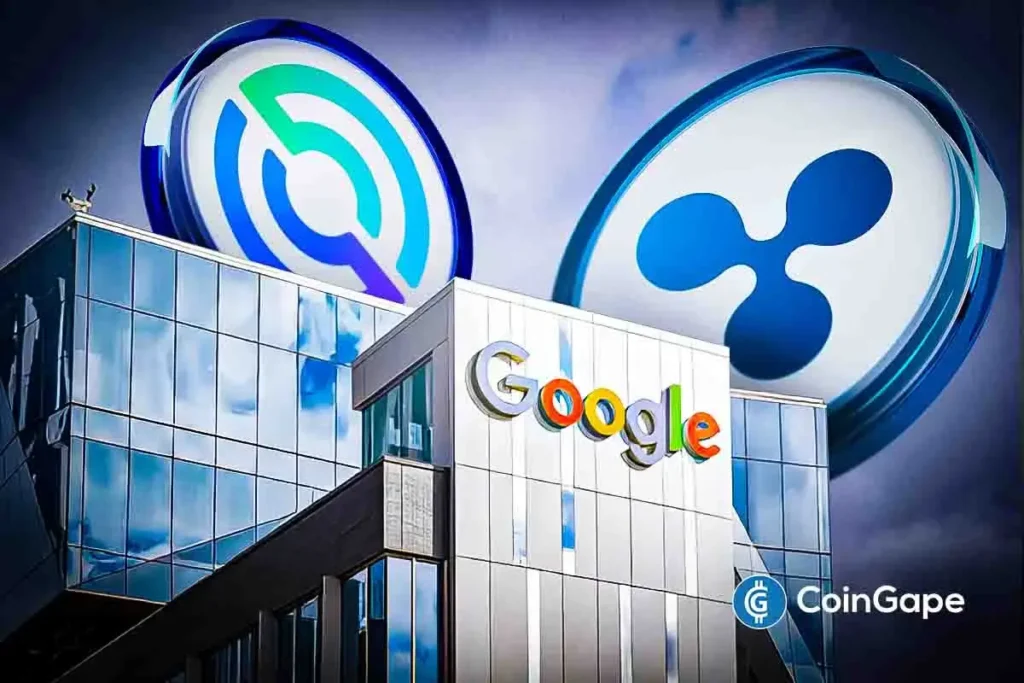Google Cloud Launches Universal Ledger: A New Era in Cross-Border Payments
Google Cloud has taken a significant leap in the blockchain and cryptocurrency arena by unveiling its Universal Ledger (GCUL), a cutting-edge Layer-1 blockchain platform designed specifically for cross-border settlements. This strategic move positions Google as a formidable challenger to established market players, including Ripple, Stripe, and Circle, known for their robust infrastructures that facilitate instantaneous global transactions. With the introduction of GCUL, Google aims to simplify and secure payment processes on a global scale, setting the stage for unprecedented growth in financial technology.
The Innovative Features of GCUL
The Google Cloud Universal Ledger is crafted to enhance the efficiency of cross-border payments and asset settlements, solutions that have become increasingly crucial as the world becomes more interconnected. Rich Widmann, the Global Head of Strategy for web3 at Google Cloud, emphasized in recent communications that GCUL is primarily designed with financial institutions in mind. One notable feature is its implementation of Python-based smart contracts, which adds a layer of flexibility and simplicity to the programming aspect of blockchain transactions. This strategic focus sets GCUL apart from existing solutions in the marketplace, evident in a comparative analysis shared by Widmann highlighting its advantages over competitors like Stripe and Circle.
Competitive Edge in Blockchain Technology
Through GCUL, Google aims to offer a comprehensive, neutral infrastructure layer that can fundamentally redefine how financial transactions are executed across borders. By leveraging its massive distribution capabilities, Google Cloud stands to provide a service that is not only user-friendly but also highly secure, ensuring that financial institutions can utilize the platform with confidence. The chart shared by Widmann outlines various facets in which GCUL outperforms its peers, focusing on ease of integration, transaction speeds, and overall cost-effectiveness.
Google’s Continued Engagement in Crypto
The launch of GCUL is part of a broader strategy by Google to deepen its involvement in the blockchain and cryptocurrency sectors. In addition to this blockchain initiative, Google has recently amplified its stake in Bitcoin mining, acquiring shares in CleanSpark, a leading Bitcoin miner. This diversification indicates that Google is not solely focused on the blockchain technology underlying GCUL but is seeking a holistic position within the rapidly evolving crypto landscape. The company’s approach reflects a clear understanding of the growing significance of digital currencies and assets in the global economy.
Targeting Financial Institutions
GCUL presents itself as a tailored solution for financial institutions keen on adopting blockchain technology to improve their operations. By facilitating faster and more reliable cross-border transactions, Google positions itself as a provider of transformative solutions that could enhance operational efficiency and lower costs for banks, payment processors, and other financial entities. The commitment to simplifying complex processes through intuitive technology will resonate well with institutions looking to modernize their infrastructure.
Future Implications in the Financial Sector
As GCUL gains traction in the marketplace, we could see wider applications and integrations across various financial services, potentially leading to a shift in how transactions are processed globally. By challenging incumbents in the space, Google not only enhances competition but also pushes other players to innovate and improve their services. The outcome may lead to a more accessible financial ecosystem, characterized by efficient worldwide transactions and a shift toward digital currency acceptance across different regions.
Conclusion
The unveiling of Google Cloud Universal Ledger signifies a pivotal moment in the ongoing evolution of cross-border payments and blockchain technology. By focusing on ease of use, security, and flexibility, Google has positioned GCUL as a compelling alternative to existing players in the market. As the company continues to invest in its blockchain initiatives, stakeholders in the financial landscape must remain vigilant and responsive to the implications of this advancement. With GCUL, Google is not just entering the blockchain market; it’s reshaping it for the future, transforming the landscape of financial transactions around the globe.


